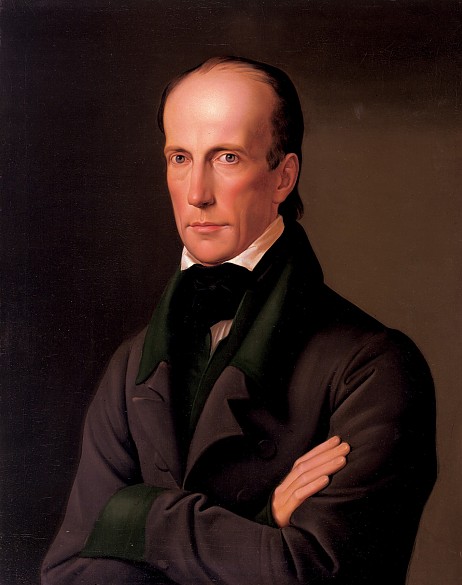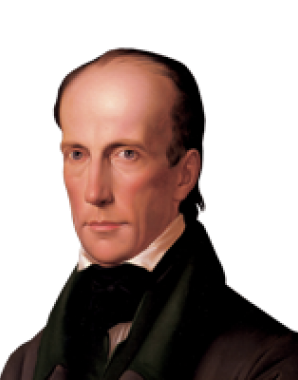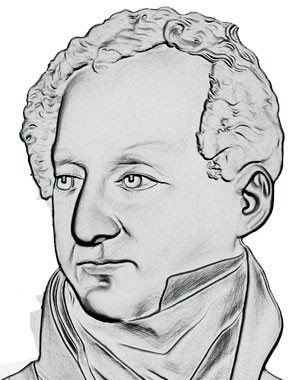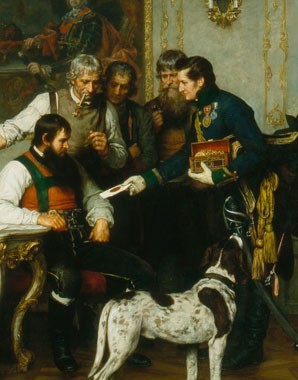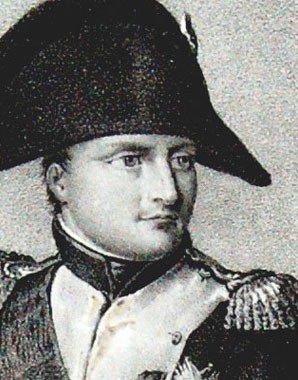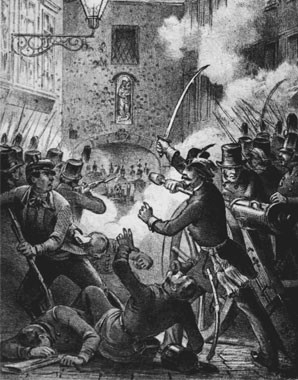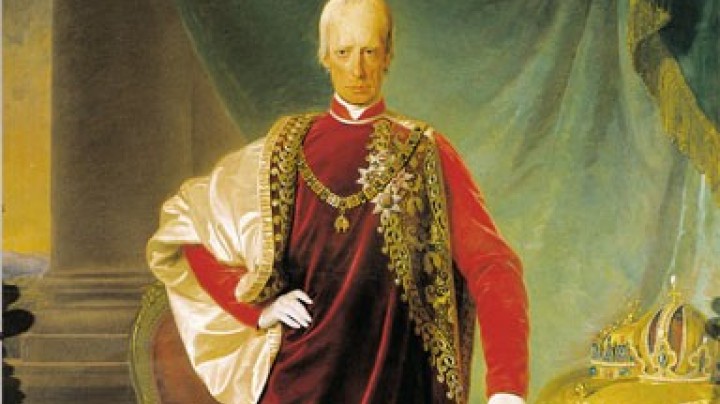The ‘Reich’s idle rotter’: Archduke Johann
For all that Archduke Johann’s present-day image is that of the Habsburgs’ ‘green rebel’, he was not quite able to fulfil all the great hopes placed in him.
‘Germans! The assembly of your representatives in Frankfurt has elected me to be Administrator of the German Reich,’ runs the beginning of Archduke Johann’s statement of 15 July 1848 after his assumption of ‘provisional central power’.
The second decade of the nineteenth century saw Archduke Johann, who was a brother of Emperor Franz, playing an important part in the war of liberation against Napoleon waged by the Tyroleans under Andreas Hofer. However, on account of his membership of the Alpenbund, a Tyrolean resistance movement that saw the emperor and Metternich as a pair of conspirators, he resigned from his political offices, greatly increasing his popularity amongst the people – in a biography published in 1981, for example, he is presented as the Habsburgs’ ‘green rebel’. Proponents of this line of thought, however, often fail to mention that in spite of all differences of opinion he did remain loyal to his brother Emperor Franz. After 1813, Johann initially withdrew largely from political life and turned his attention to Styria, where he became a highly popular figure, particularly on account of his marriage to Anna Plochl, a postmaster’s daughter.
Johann returned once again to politics in the revolution of 1848, when on 29 May in the church of St Paul in Frankfurt he was elected to the post of Reichsverweser (Regent of the Reich) by the representatives of the German states. In Vienna and Graz the archduke also endeavoured to arbitrate and mediate between parties to the conflict. On 22 July he opened the Reichstag, the parliament of the post-revolutionary Monarchy. The intention was that he should carry out the office of regent as the representative of the monarch until the National Assembly had elected an emperor as head of state – which finally never happened. However, the conflicts within the bourgeoisie and between the revolutionary and reactionary forces were too great for Archduke Johann to be able to exert any real influence on a reshaping of Germany. His political impotence led to his being ridiculed – in a pun on the fact that ‘verwesen’ and ‘verfaulen’ both mean ‘to rot’, the first also meaning ‘to administer’ and the second also having the overtone ‘to be idle’ – as the ‘Reichsverfauler’ or ‘Reich’s idle rotter’.
Archduke Johann’s optimism and his hopes for progress are clearly perceptible in his proclamation ‘To the German People’. Nevertheless, he was at the same time a sceptic whose failure in the practical field led to retreat into alternative worlds of a more idyllic kind. In any case, Archduke Johann is a clear demonstration that the Habsburg dynasty cannot be regarded as a monolithic unit: in his personality we see numerous contradictions between dynastic claims to power and liberal thought, between pessimism and faith in progress.
